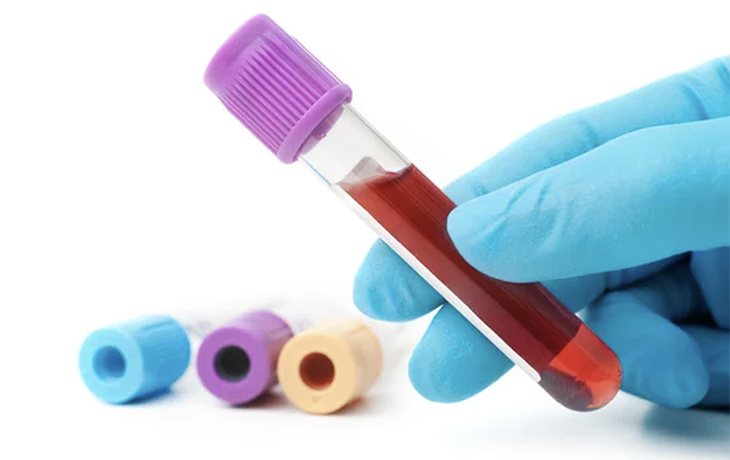
A groundbreaking blood tests shows promise in revolutionizing the early detection of Alzheimer’s disease, a critical advancement considering the potential effectiveness of treatments in the disease’s initial stages.
Recently published findings in JAMA Neurology reveal that this innovative blood test, capable of measuring a specific protein in the plasma, boasts an impressive accuracy rate of up to 95 percent in identifying Alzheimer’s, the most prevalent form of dementia.
The test focuses on detecting phosphorylated TAU 217 protein (p-tau217), whose presence correlates with the accumulation of beta-amyloid and tau proteins in the brain, recognized hallmarks of Alzheimer’s disease. Unlike traditional diagnostic methods such as positron emission tomography (PET) imaging and lumbar puncture, which entail invasive procedures, this blood test offers a non-invasive, cost-effective, and swift alternative.
“PET scans, however, are not widely available in all communities, and they require an injection of a radioactive material to see the amyloid and tau in the brain, while spinal taps are invasive and time-consuming. The value of the blood test is that it can be performed in the course of routine clinical care by doctors who do blood tests all the time in their office,” says Howard Fillit, MD, chief science officer with the Alzheimer’s Drug Discovery Foundation.
8 of 10 Tested Had A Definitive Diagnosis
In the study, researchers collected blood samples, conducted brain scans, and performed spinal taps on 786 adults from the United States, Canada, and Spain. On average, participants were 66 years old, with one-third classified as cognitively impaired.
Upon comparing the results of the p-tau2017 blood test with those obtained from spinal taps and PET scans, scientists observed that the indications of Alzheimer’s disease-related brain changes were comparable to those identified through spinal fluid analysis and PET scans.
Approximately 20 percent of the study participants had p-tau217 blood tests results that were inconclusive, necessitating fu7rther diagnostic procedures such as spinal taps or PET scans to confirm Alzheimer’s diagnosis. However, about 80 percent obtained definitive results, streamlining the diagnostic process.
Furthermore, the findings revealed a positive correlation between increased levels of p-tau217 and heightened cognitive impairment, indicating the potential utility of the blood test as a prognostic indicator.
Andreas Jeromin, PhD, a study author and chief scientific officer at ALZpath, emphasized that the ALZpath Dx test should be integrated into comprehensive patient evaluations. He underscored the importance of using this tool as part of a broader assessment strategy for Alzheimer’s disease.
“It’s not really standalone,” he says. “The results will be explained to the patient along with the overall assessment of clinical presentation [of the disease].”
The Importance of Early Detection of Alzheimer’s Disease
Dr. Jeromin proposes that initially, the test is likely to be utilized in patients exhibiting mild cognitive impairment and early signs of Alzheimer’s disease, such as forgetfulness and repetitive questioning, as recommended by the NHS.
“The earlier you treat the disease with pharmacological interventions and modifications of lifestyle, the higher the likelihood that they will slow down the progression of cognitive decline. That’s why it’s important to assess these people as early as possible,” says Dr. Jeromin.
Early detection has the potential to enhance the effectiveness of treatments with novel drugs like lecanemab (Leqembi). Approved by the U.S. Food and Drug Administration (USDA) last year, this monoclonal antibody medication demonstrated promising results in reducing amyloid levels in the brain and decelerating cognitive decline.
While lifestyle modifications are challenging to quantify, Dr. Jeromin suggests that activities such as diet modification, exercise, social engagement, and cognitive-stimulating pursuits like learning a new language or reading can contribute to slowing cognitive decline and improving overall disease trajectory.
Although currently restricted to research settings, ALZpath Dx will soon be accessible as a laboratory-developed test (LDT) in select partner labs, with plans for expansion across the United States throughout 2024. Patients will have the option to procure the test through their physicians, with an estimated cost ranging between $200 and $500.
Dr. Jeromin anticipates potential FDA approval of the test as a diagnostic tool by late 2025 or early 2026.
Looking ahead, he envisions the integration of the test into routine wellness visits, akin to screenings for conditions like diabetes and other chronic diseases. Furthermore, the test holds potential for assessing the efficacy of Alzheimer’s medications and interventions in patients.
An Optimistic Time for Alzheimer’s Treatment and Assessment
Alzheimer’s, a progressive and irreversible brain disorder, afflicts over 6.5 million Americans, gradually impairing memory, cognitive abilities, and ultimately, the capacity to perform everyday tasks.
However, there is cause for optimism in the realm of Alzheimer’s diagnosis and treatment, as highlighted by Rebecca Edelmayer, PhD, the senior director of scientific engagement for the Alzheimer’s Association. ALZpath Dx represents just one of several blood tests for Alzheimer’s currently in development for clinical application.
“We are quickly moving toward a time when we’ll have validated diagnostic tools that allow for earlier and more accurate diagnosis in broader clinical settings. However, there remain unanswered questions around the generalizability and broad use of blood tests for Alzheimer’s in primary care,” she says.
The Alzheimer’s Association emphasizes the importance of consulting healthcare professionals before undergoing any testing for Alzheimer’s or dementia. Official recommendations regarding the use of blood tests and biomarkers are provided by the Alzheimer’s Association to aid in informed decision-making.
Dr. Edelmayer says, “The results we’re seeing with this blood biomarker test are encouraging. [But] at this time, available blood tests are best used as an initial test to aid in diagnosis, and may lead to further cognitive testing and additional biomarker testing using CSF [cerobrospinal fluid from a spinal tap] or PET scans to confirm a diagnosis.”



